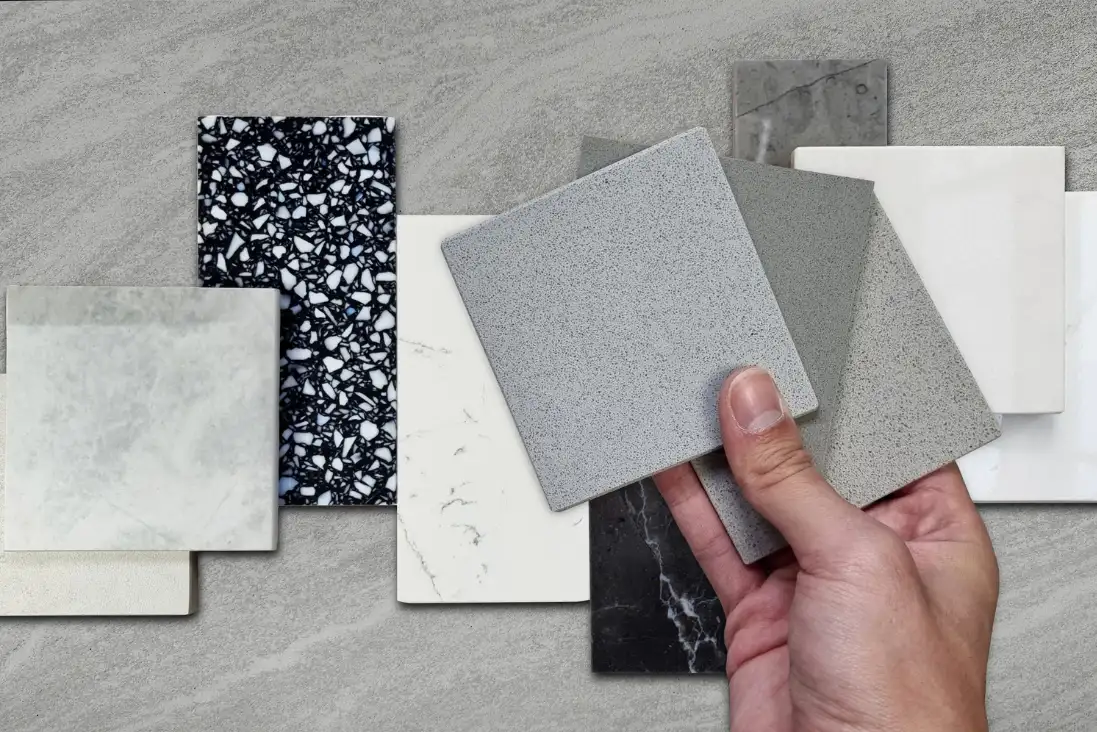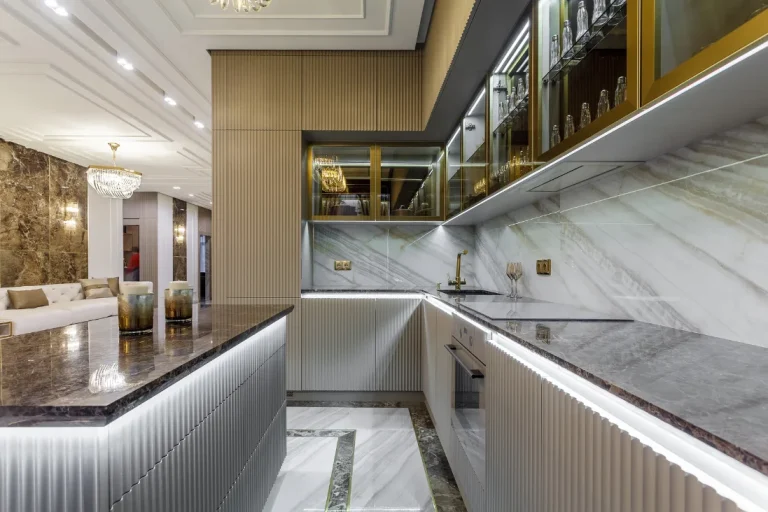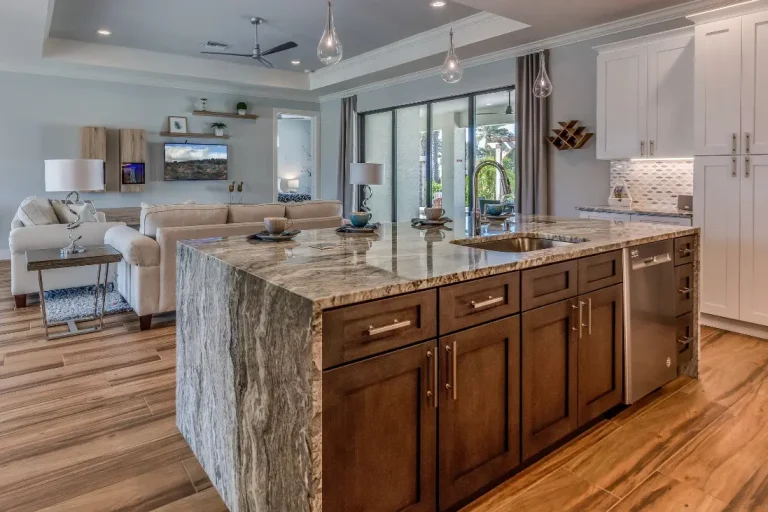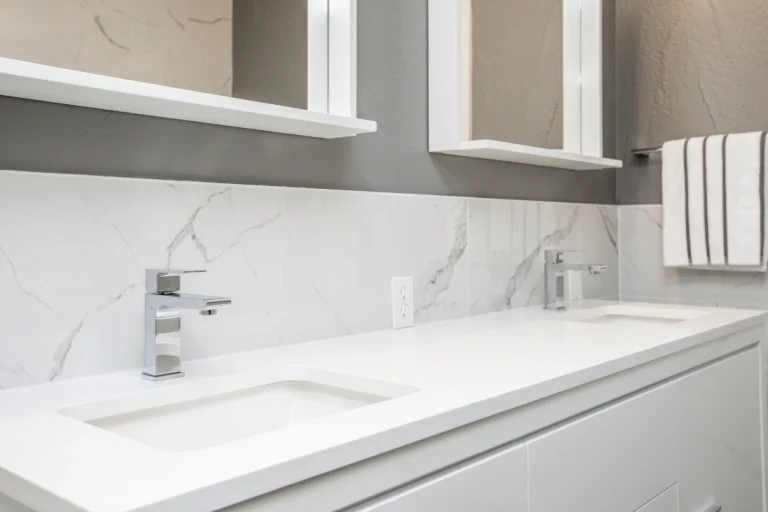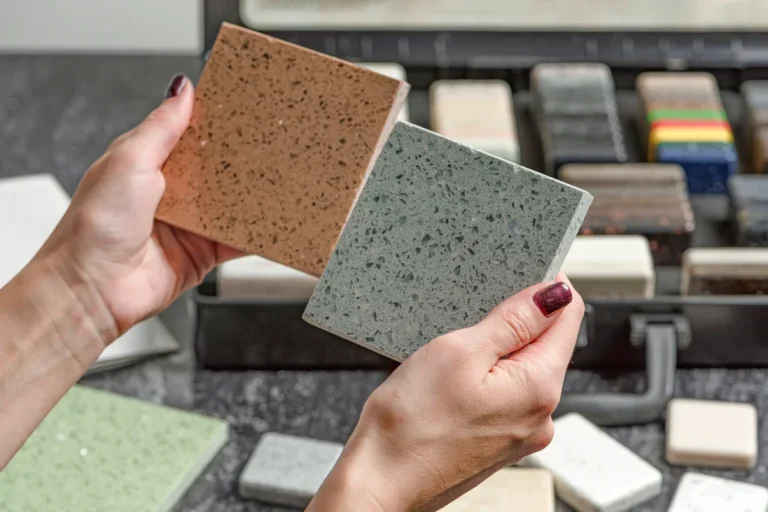Are you planning to renovate your kitchen, seeking the perfect natural stone countertop that can withstand high temperatures without compromising style? Well, there are plenty of options to choose from. With a wide range of options available, such as Quartz, Quartzite, Granite, and Marble, each offering unique heat-resistant properties, it can be challenging to determine which one suits your needs best.
In this blog, we will discuss the heat resistance capabilities of these natural stone countertops to help you make an informed decision for your next renovation project. We will also discuss how you can preserve these heat resistant countertops for their optimal performance for many years to come and why you should choose professional countertop installers for your project.
The Best Countertops For Heat Resistance
When selecting the best stone for kitchen countertops that offer optimal heat resistance, several materials stand out for their durability and ability to withstand high temperatures. Some of them are considered the best and are listed below:
Quartz Countertops
Composed of natural quartz crystals made with polymer resins, these engineered stone surfaces offer a stunning array of designs while maintaining robustness. However, their heat resistance presents a notable limitation. The polymer resins, constituting approximately 7% to 10% of the material, begin to degrade when exposed to temperatures exceeding 150°C (300°F). This degradation can lead to discoloration, warping, or cracking, compromising both the appearance and functionality of the countertop.
Despite this sensitivity to high heat, quartz countertops perform admirably in everyday kitchen activities, resisting damage from most sources. However, you can save these countertops in the following ways:
- Don’t put hot pots or dishes directly on the Quartz countertop.
- Always use trivets or hot pads to protect your countertop. Let hot pots cool on the stovetop before placing them on the counter.
- Use coasters for hot drinks like coffee. Even though your coffee might not be boiling, it’s still wise to be cautious.
- Install quality quartz countertops that are more resistant to heat, stains, and cracks.
Quartzite Countertops
In contrast to Quartz, quartzite countertops offer a compelling combination of natural beauty and durability with superior heat resistance. As a completely natural stone, quartzite does not contain polymer resins, eliminating concerns about heat-related degradation. Its formation process, characterized by intense heat and pressure, imbues it with the ability to withstand high temperatures without damage, making it an ideal heat resistance countertop.
This natural stone countertop can handle direct contact with hot pots and pans better than many other countertop materials, including engineered Quartz. However, variations exist within different slabs, and some may be more susceptible to thermal shock than others. To preserve quartzite countertops, follow these safety measures:
- Use trivets or hot pads to reduce the risk of extreme temperatures or thermal shock damage.
- Regular sealing is also necessary to protect against stains and maintain the stone’s natural beauty, as quartzite is porous.
Granite Countertops
Being an igneous rock forged in the intense heat of a volcano, granite stands as one of the most durable natural stones globally. With the ability to endure temperatures reaching up to 1,650°F and having a melting point of approximately 2,300°F, granite is well-known for exceptional resilience against heat. Granite countertops can also handle direct contact with hot items without damage, such as discoloration, cracking, or warping.
Additionally, the durability of granite extends beyond heat resistance, as it is also resistant to scratches, chips, and cracks, making it an ideal choice for high-traffic kitchens. Despite this exceptional heat resistance, using trivets or hot pads is advisable to protect the finish and ensure this heat-resistant countertop remain in pristine condition over time. You can achieve this by following measures:
- Cooking appliances like slow cookers, deep fryers, roasting pans, and air-fryers can all pose a risk if they’re too hot. So, place these things away from granite countertops.
- Repeating hot stuff on the countertops can make them crack and leave ugly black marks. So avoid the repetition of putting hot items on your granite countertops.
Marble Countertops
Marble countertops are an option to consider for timeless elegance, but their heat resistance falls slightly short compared to granite. While marble is resistant to discoloration or burns, prolonged exposure to high temperatures can cause some damage. However, well-maintained marble countertops can withstand temperatures greater than those typically produced in a kitchen environment.
As a natural stone, marble is heat resistant up to 350 degrees Fahrenheit, making it suitable for most culinary activities. Nonetheless, homeowners should exercise caution and avoid extended contact with hot items. Some of them are listed below:
- Always use hot pads or trivets under hot cookware and appliances on your marble countertops to protect them from heat.
- Consider getting coasters to prevent direct contact between heat sources and the marble surface.
- If you’re using heat-emitting appliances like slow cookers nearby, place them on a heat-resistant surface like a rug or tile floor.
- Avoid using cleansers containing vinegar or acidic ingredients as they can damage the marble’s surface and reduce its heat resistance.
- Periodically apply a stone sealer to add an extra layer of protection against heat damage.
Why You Should Hire Professionals to Install Your Countertops?
When considering the installation of a natural stone countertop, it’s crucial to enlist the expertise of professionals for several reasons, particularly when aiming to maximize heat resistance. Installing countertops requires precision, skill, and knowledge of materials to ensure longevity and functionality.
Professional countertop installers are well-versed in assessing what the best stone is for kitchen countertops , providing options that offer superior heat resistance, such as granite or quartzite, which can withstand high temperatures without warping or discoloration. Their expertise extends to proper installation techniques, including sealing and leveling, which are vital for durability and maintenance.
Read Also – countertop square footage calculator
Conclusion
Selecting the ideal natural stone countertop for a heat resistant countertop involves careful consideration of various factors such as material composition, thickness, and finish. As highlighted in this blog, granite emerges as a top choice due to its exceptional heat resistance properties. However, quartzite and marble also offer commendable durability against high temperatures.
By hiring our professionals at APF, you not only guarantee a flawless installation but also ensure your countertops can withstand the rigors of daily kitchen use. We install heat resistant countertops with advanced tools and materials, ensuring they are securely fitted and properly sealed to enhance their heat resistance. Whether you opt for granite, quartzite, or marble, our team is equipped with the expertise to deliver exceptional results. Contact Us Today!

